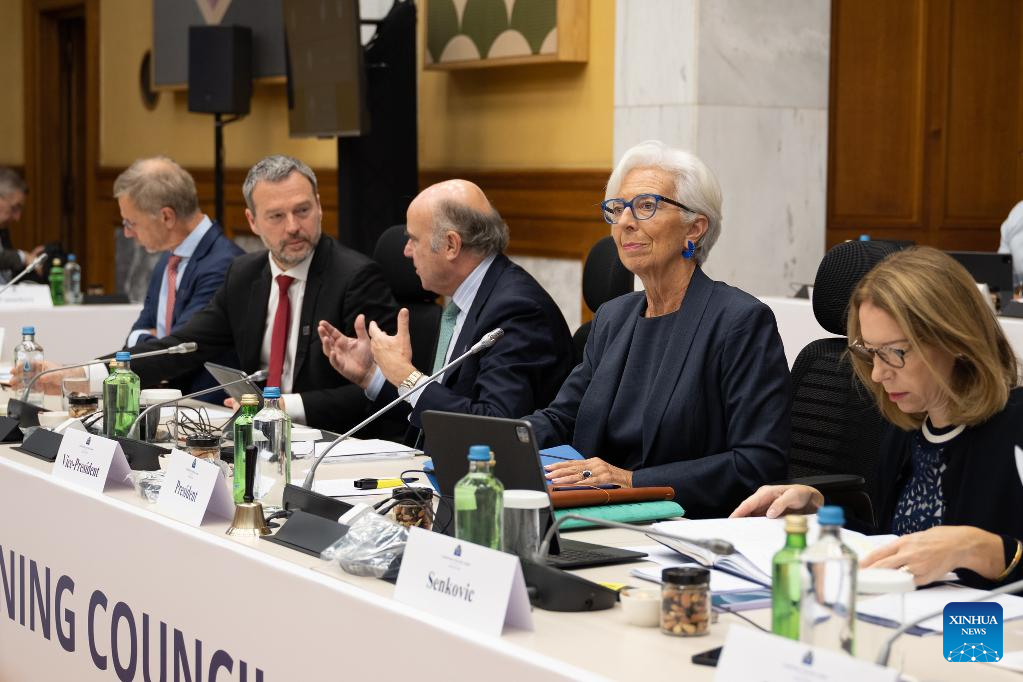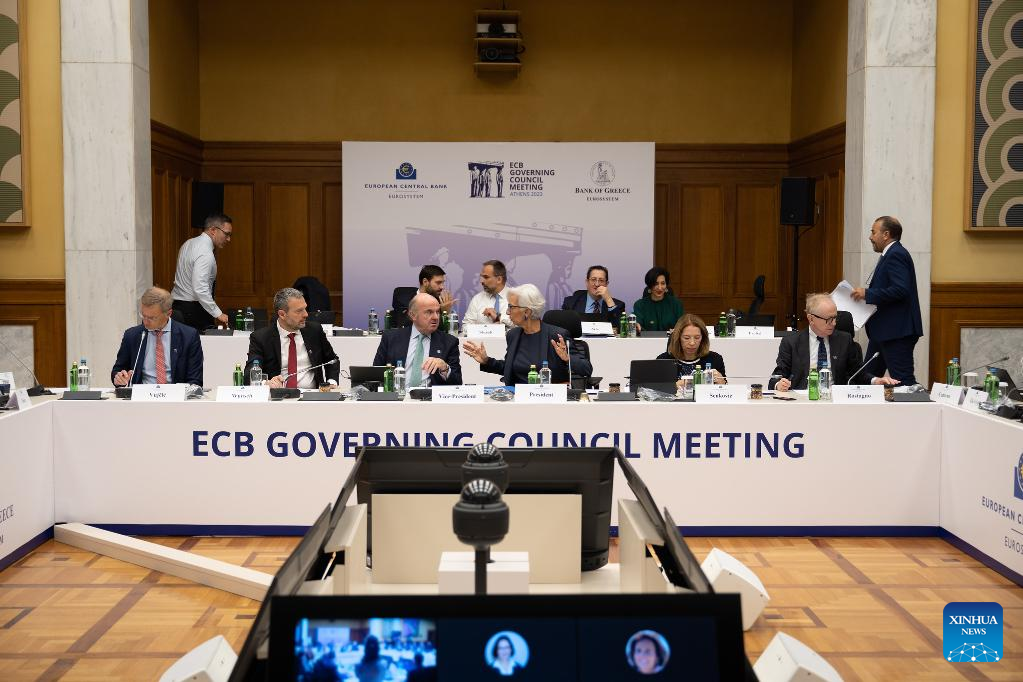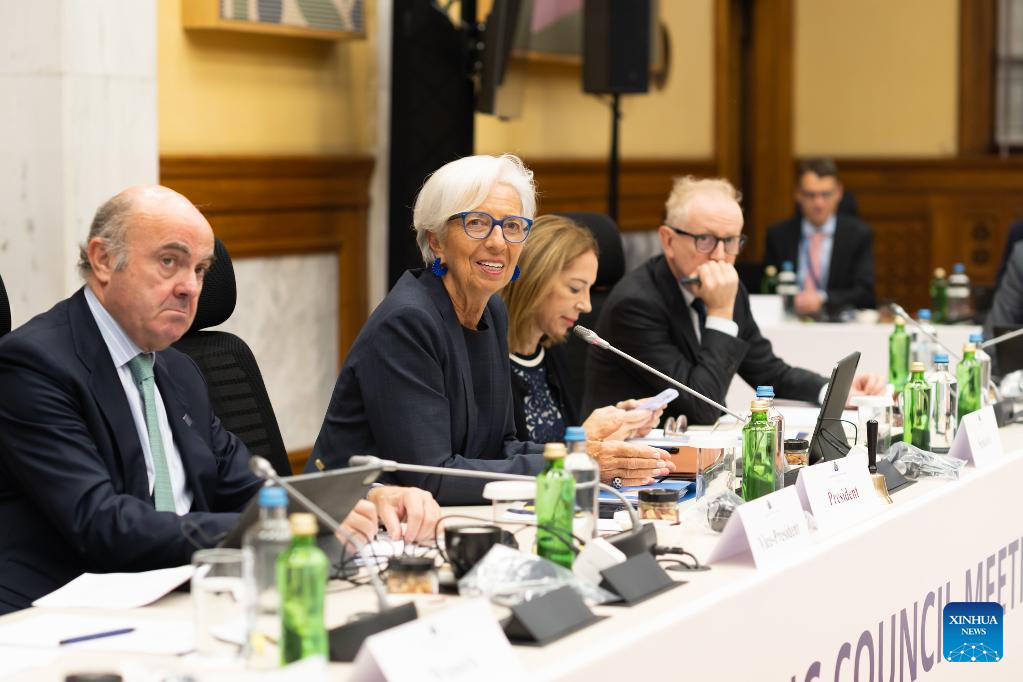
President of the European Central Bank (ECB) Christine Lagarde (2nd, R) attends the ECB Governing Council Meeting in Athens, Greece, Oct. 26, 2023. The European Central Bank's (ECB) Governing Council kept its three key rates unchanged after 10 hikes in 15 months at its meeting here on Thursday.(Andrej Hanzekovic/ECB/Handout via Xinhua)
ATHENS, Oct.26 (Xinhua) -- The European Central Bank's (ECB) Governing Council kept its three key rates unchanged after 10 hikes in 15 months at its meeting here on Thursday.
The interest rates on the main refinancing operations, the marginal lending facility and the deposit facility will remain unchanged at 4.5 percent, 4.75 percent, and 4 percent, respectively, according to an ECB press release.
"The incoming information has broadly confirmed (the Governing Council's) previous assessment of the medium-term inflation outlook," it said.
According to the Governing Council, which brings together the governors of the national central banks of the eurozone member states and the six members of ECB's Executive Committee, inflation is expected to stay too high for too long, and domestic price pressures remain strong.
Nevertheless, inflation dropped markedly in September due to strong base effects, and most measures of underlying inflation have continued to ease. Furthermore, the Governing Council's past interest rate increases continue to be transmitted forcefully into financing conditions. This is increasingly dampening demand and thereby helps push down inflation.
"We are determined to ensure that inflation returns to our 2 percent medium-term target in a timely manner," ECB President Christine Lagarde told journalists on Thursday. "Based on our current assessment, we consider that the key ECB interest rates are at levels that, maintained for a sufficiently long duration, will make a substantial contribution to this goal."
"Our future decisions will ensure that our policy rates will be set at sufficiently restrictive levels for as long as necessary. We will continue to follow a data-dependent approach to determining the appropriate level and duration of restriction," she added.
The eurozone economy is likely to remain weak for the remainder of this year, but as inflation falls further, household real incomes recover and demand for eurozone exports pick up, the economy should strengthen in the coming years, Lagarde said.
However, "upside risks to inflation could come from higher energy and food costs. The heightened geopolitical tensions could drive up energy prices in the near term, while making the medium-term outlook more uncertain," she said.
Asked about the risks posed by the situation in the Middle East, Lagarde said that the conflict between Israel and Hamas along with the conflict in Ukraine are "key sources of geopolitical risk" under consideration. The ECB is monitoring the situation for any direct or indirect impact on energy prices, she said. ■

President of the European Central Bank (ECB) Christine Lagarde (3rd, R, front) attends the ECB Governing Council Meeting in Athens, Greece, Oct. 26, 2023. The European Central Bank's (ECB) Governing Council kept its three key rates unchanged after 10 hikes in 15 months at its meeting here on Thursday.(Andrej Hanzekovic/ECB/Handout via Xinhua)

President of the European Central Bank (ECB) Christine Lagarde (2nd, L) attends the ECB Governing Council Meeting in Athens, Greece, Oct. 26, 2023. The European Central Bank's (ECB) Governing Council kept its three key rates unchanged after 10 hikes in 15 months at its meeting here on Thursday.(Adrian Petty/ECB/Handout via Xinhua)
